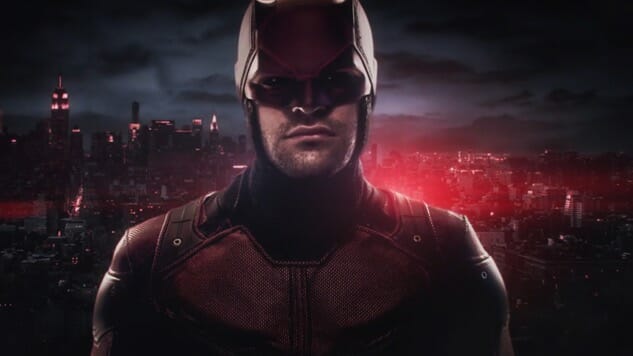A Spoiler-Free Daredevil: Season Two

This review, like our DaredevilSeason One review, does not contain spoilers. In fact, I’m not even going to tell you all of the cast members from this season. So there.
First things first. Is it as good as the first season?
In my opinion, it absolutely is, but your mileage may vary depending on what you liked about the first season. If you enjoyed the action, just stop reading now and start watching immediately (Editor’s Note: Jack, please don’t tell people to stop reading our content…. this is why we can’t have nice things. Everyone else, keep reading). If you enjoyed the multi-layered character development and solid world-building, you’ll be happy, but may want to stick around for further discussion. If you found all of that tedious and boring the first time around, there isn’t anything here that is likely to change your mind.
Who made it?
The show was created by Drew Goddard, and the showrunner for Season One was Steven DeKnight. DeKnight is replaced this season by co-showrunners Doug Petrie and Marco Ramirez, who were both promoted from their writing duties on Season One. Petrie is yet another alumnus of Joss Whedon’s Buffyverse along with Goddard. Ramirez is in demand after stints story editing on Orange is the New Black and as a consulting producer on Season One of Fear the Walking Dead. I mention this only because it seems pretty obvious that Netflix was concerned with how to manage the uptick in characters and plotlines in Season Two, and bringing on two guys well versed in both certainly must have seemed like a good idea.
Was it a good idea?
Probably so. Season One wasn’t exactly light on characters or plotlines, but this second season makes it seem positively anemic by comparison. One of the things that made Season One so impressive was its willingness to keep a measured pace and build a solid foundation for the show, before piling on loads of subplots. We spent several hours with Matt Murdock before Vincent D’Onofrio’s Wilson Fisk was even on our radar. If I have one nitpick with Daredevil’s otherwise brilliant sister show, Jessica Jones, it is that we never got a sense of the main character before her nemesis, Kilgrave, arrives on the scene. It was less of one long arc than the same small arc repeating itself again and again, with gradually increasing stakes. Season Two of Daredevil wants to have it both ways. Much like the first season, the show shifts its focus every few episodes, but this time there are multiples twists with multiple character additions and in some ways it feels like several short seasons butted up against each other. It is propulsive entertainment, but at times it does feel like too much, too fast. Can’t we just enjoy finally having an excellent onscreen version of The Punisher for a minute before we move on to finally having an excellent onscreen version of Elektra? No? Fine.
Does “too much, too fast” refer to new characters?

Not really, as last season left us with some big holes to fill. Charlie Cox returns as Matt Murdock/Daredevil. Deborah Ann Woll and Elden Henson return as legal associates Karen Page and Foggy Nelson. Woll comes into her own with renewed focus on her character and her own storylines. Elden Henson continues to be saddled with the yeoman’s work of being both comic relief and the show’s moral conscience—and neither is particularly well fitting for him. Marvel’s movie theater spectacles have succeeded in large part because of the chemistry between the leads. When Chris Evans and Robert Downey Jr. verbally spar, the bond between them is believable because their exchanges have the ring of truth to them. When Foggy and Matt talk, it feels more like an audition than a lifelong friendship. It isn’t a deal-breaker, but it stands out as a missed opportunity. There are other first season folks that I’ll mention like Rosario Dawson, but the rest are more fun to discover on your own.
More notable are the new additions. Losing Vondie Curtis-Hall’s Ben Urich and Toby Leonard Moore’s Wesley last season means there is a big void to fill, as both of those actors brought a metric ton of weight and charisma to the proceedings. Urich’s everyman decency falls to Woll this season and she is up to the task, but things are even better on the criminal side of the fence. Rarely has there been as much unified rejoicing over a popular comic character’s casting than when Jon Bernthal was cast as Frank Castle AKA The Punisher. That joy was not misplaced. He is easily the best thing about the second season, even if his presence presents some minor hurdles for Netflix to overcome as they plan their future calendar of shows. Perhaps equally good is Élodie Yung as Elektra Natchios (the unnamed Greek college girlfriend of Matt’s, briefly mentioned in Season One).
-

-

-

-

-

-

-

-

-

-

-

-

-

-

-

-

-

-

-

-

-

-

-

-

-

-

-

-

-

-

-

-

-

-

-

-

-

-

-

-








































